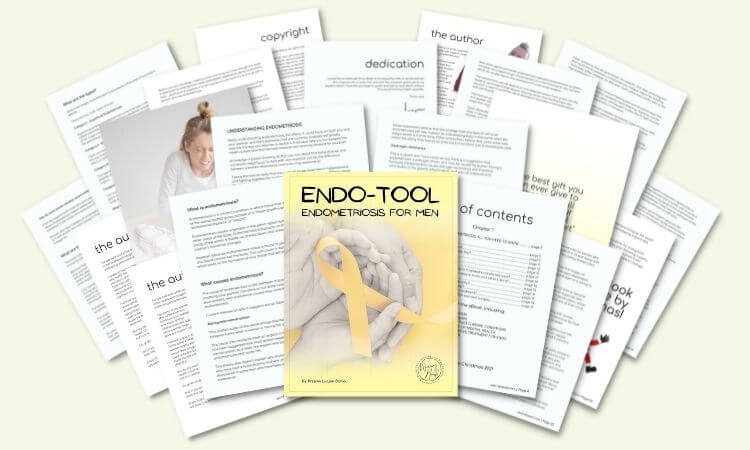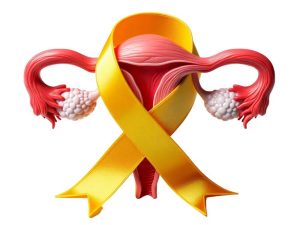Overcoming Martial Challenges Posed by Endometriosis
When it comes to overcoming martial challenges posed by endometriosis, I gained enormous experience over the last 14 years of being married to my beautiful Italian wife. As a man deeply invested in supporting her through her battle with endometriosis, I’ve encountered numerous challenges in our martial journey.
On multiple occasions she asked me to divorce her, she also tried to take her own life, but I stood by her, and today we are closer to each other than ever before.
Endometriosis can significantly impact a couple’s relationship, requiring patience, understanding, and effective communication to navigate its complexities. From managing pain and fertility concerns to maintaining intimacy and emotional well-being, overcoming these challenges demands unwavering commitment and solidarity as a couple. Join me as we explore strategies and insights for triumphing over the martial hurdles posed by endometriosis.
Scroll down to discover practical tips and valuable insights on navigating the challenges of endometriosis within a relationship.
What do YOU Know about Endometriosis?
This quiz focuses on the basic facts about endometriosis, helping to spread awareness and dispel common myths.

- A Word on Overcoming Martial Challenges Posed by Endometriosis
- Understanding the Impact of Endometriosis on Marital Relationships
- Coping Strategies for Overcoming Intimacy Difficulties with Endometriosis
- Emotional Support for Couples Dealing with Endometriosis
- Communication Tips for Couples with Endometriosis
- Seeking Professional Help for Endometriosis and Marriage Challenges
- Supporting the Partner of a Woman with Endometriosis
- Balancing Individual and Couple Needs in the Face of Endometriosis
- Overcoming Feelings of Isolation and Loneliness
- Educating Yourself and Your Partner about Endometriosis
- Fostering Resilience and Hope in the Face of Endometriosis
- Acknowledging and Addressing Emotional and Mental Health Needs
- Finding Joy and Embracing Life Despite Endometriosis
- Building a Stronger Relationship Through the Challenges of Endometriosis
- Source Links
A Word on Overcoming Martial Challenges Posed by Endometriosis
As the husband of a woman who has endometriosis and fibromyalgia, I know firsthand the impact these conditions can have on a marriage. The chronic pain, fatigue, and other symptoms can create daily challenges that test the strength of our relationship. But through empathy, understanding, and effective communication, we have found ways to navigate these difficulties and continue building a strong and loving partnership.
But have you ever wondered how couples cope with the martial challenges posed by endometriosis? How do we maintain intimacy, emotional connection, and support each other through the ups and downs? Is it possible to overcome these obstacles and build a stronger relationship?
If you’re facing endometriosis and experiencing marital issues, or if you’re trying to understand how to cope with endometriosis in relationships, this article is for you. I will share insights, strategies, and practical tips based on my own experiences, as well as expert advice, to help you overcome the martial challenges posed by endometriosis and find strength and resilience in your relationship. Let’s embark on this journey together and discover how love can conquer the obstacles thrown our way.
If you want to learn more about endometriosis, I wrote an “Endo-Tool, Endometriosis for Men” e-Book.
You can get the 1st Chapter of the e-Book for FREE, and if you like it, you’ll get a Whopping 33% Discount on the Whole Book, plus discounts on other helpful tools. You have nothing to lose but a lot to gain!
The first chapter alone contains all the comprehensive medical knowledge about endometriosis, including:
- What is endometriosis?
- What are the symptoms?
- What causes endometriosis?
- What does endometriosis look like?
- What are the stages?
- What are the types?
- What is adenomyosis and how is it related to endometriosis?
- Why do some women develop severe endo and others don’t?
- Does endometriosis cause infertility?
- How is endometriosis diagnosed?
- Do types and stages affect the treatment?
- Recurrence of endometriosis after excision surgery.
FREE Chapter of “Endo-Tool”
Endometriosis e-Book for Men

Understanding the Impact of Endometriosis on Marital Relationships
Living with endometriosis can significantly impact marital relationships, causing emotional distress, reducing sexual satisfaction, and introducing challenges in daily activities. The chronic pain and other symptoms associated with endometriosis can take a toll on both partners, making it essential to seek support and understanding.
Partners may struggle to comprehend the physical and emotional toll that endometriosis can have on their loved one. It is important for couples to come together and seek support from healthcare professionals and support groups or online communities specialized in endometriosis. By sharing experiences and finding guidance, couples can navigate the challenges together and strengthen their bond.
Understanding and open communication play a crucial role in overcoming the impact of endometriosis on marital relationships. By empathizing with each other’s struggles and discussing the challenges openly, couples can find ways to support each other and maintain a fulfilling relationship even while dealing with endometriosis.
| Impact of Endometriosis on Marital Relationships |
|---|
| Emotional distress |
| Reduced sexual satisfaction |
| Challenges in daily activities |
| Struggles in understanding the physical and emotional toll |
| Need for support and understanding |

Coping Strategies for Overcoming Intimacy Difficulties with Endometriosis
Living with endometriosis can present challenges to intimacy within a couple’s relationship. The physical and emotional effects of the condition, such as painful intercourse, fatigue, and body image issues, can impact the sexual aspect of the relationship. However, there are strategies that couples can employ to navigate these difficulties and maintain a strong emotional connection.
Open and honest communication is crucial when facing intimacy challenges. Each partner should feel comfortable expressing their individual needs and concerns. By discussing preferences, boundaries, and any physical or emotional limitations imposed by endometriosis, couples can find ways to accommodate and prioritize each other’s comfort and well-being.
Exploring alternative forms of intimacy can be an effective way to maintain a strong emotional connection when sexual intimacy is restricted. Cuddling, massage, and nonsexual touch can create nurturing moments of closeness and intimacy. These activities can help partners feel connected and loved, even during times when sexual intimacy may not be possible.
It is also important for partners to educate themselves about endometriosis. Understanding the condition and its impact can foster empathy and support. By learning about the physical limitations and symptoms of endometriosis, partners can better understand the challenges their loved one is facing and offer the necessary support and understanding.
Supporting and loving a woman with endometriosis requires patience, empathy, and attentiveness. By implementing these coping strategies, couples can navigate intimacy difficulties, strengthen their emotional bond, and foster a resilient and loving relationship.
Emotional Support for Couples Dealing with Endometriosis
The emotional impact of endometriosis can be overwhelming for both partners in a relationship. The woman with endometriosis often experiences a range of emotions, such as guilt, frustration, and a sense of inadequacy. At the same time, the partner may feel helpless and overwhelmed, unsure of how to provide the support needed.
During these challenging times, seeking emotional support is crucial for both individuals in the relationship. Whether it’s through individual therapy, couples counseling, or joining support groups, finding outlets to express emotions and concerns in a safe and understanding environment can make a significant difference.
Personally, I found therapy to be incredibly helpful in navigating the emotional challenges of endometriosis. It provided a space where I could openly discuss my feelings and fears without judgment. Therapy also helped my partner understand their own emotions and learn effective ways to support me.
Support groups specifically for couples dealing with endometriosis can also offer a unique form of understanding and empathy. Connecting with others who are going through similar experiences allows couples to share advice, learn coping strategies, and gain a sense of validation knowing they are not alone.
Through seeking emotional support and addressing the emotional challenges of endometriosis together, couples can build a stronger and more resilient relationship. It’s important to remember that seeking help is not a sign of weakness but a proactive step towards nurturing the relationship and fostering a supportive environment.
Supporting a Loved One through Endometriosis
When supporting a partner with endometriosis, it’s essential to remember that their emotions and experiences are valid. Here are a few ways you can provide emotional support:
- Listen actively: Give your partner the space to express their feelings and concerns without interruption. Show empathy and validate their experiences.
- Show understanding: Educate yourself about endometriosis to gain a better understanding of what your partner is going through. This knowledge can foster empathy and help you provide effective support.
- Offer reassurance: Remind your partner that you are there for them and that their feelings are valid. Reassure them that you will support them through the ups and downs of living with endometriosis.
- Be patient: Understand that endometriosis can be unpredictable, and your partner may have good and bad days. Practice patience and provide emotional support during difficult times.
- Encourage self-care: Support your partner in taking care of their physical and mental well-being. Encourage them to prioritize self-care activities that bring them joy and relaxation.
Remember, being a source of emotional support for your loved one with endometriosis can have a profound impact on their well-being and the overall strength of your relationship.
| Benefits of Emotional Support for Couples | Tips for Providing Emotional Support |
|---|---|
| 1. Improved emotional well-being | 1. Practice active listening |
| 2. Strengthened bond and trust | 2. Show empathy and understanding |
| 3. Reduced feelings of isolation | 3. Educate yourself about endometriosis |
| 4. Enhanced communication skills | 4. Practice patience and reassurance |
| 5. Effective problem-solving | 5. Encourage self-care activities |

Communication Tips for Couples with Endometriosis
Effective communication plays a crucial role in helping couples navigate the challenges of endometriosis. It is important for partners to openly and honestly express their needs, concerns, and emotions. By actively listening and validating each other’s experiences, couples can foster a deeper understanding and empathy for one another.
Here are some communication tips for couples dealing with endometriosis:
- Be open and honest: Share your thoughts and feelings openly with your partner. This will create a safe space for both of you to express yourselves without judgment or criticism.
- Active listening: Give your partner your full attention when they are speaking. Show that you are actively engaged by maintaining eye contact and nodding your head to indicate understanding.
- Validation: Validate your partner’s experiences and emotions. Let them know that you understand and empathize with what they are going through.
- Discuss the impact of endometriosis: Talk about how the physical limitations of endometriosis may affect your daily lives. This includes sharing household responsibilities and managing expectations.
- Regular check-ins: Schedule regular check-ins to discuss any challenges or changes in symptoms. This will help you stay connected and support each other through the ups and downs of living with endometriosis.
By prioritizing effective communication, couples can strengthen their relationship and work together to manage the impact of endometriosis. Remember, open and honest communication is the key to building intimacy, empathy, and understanding.
Seeking Professional Help for Endometriosis and Marriage Challenges
Dealing with the martial challenges posed by endometriosis may require professional help. Couples can seek assistance from therapists or counselors who have experience working with chronic illnesses or reproductive health issues. Support groups for couples dealing with endometriosis can provide a safe space for sharing experiences, receiving advice, and finding comfort in knowing that others are going through similar challenges. It is important for couples to remember that seeking professional help is not a sign of weakness, but rather a proactive step towards building a stronger relationship.
When facing the challenges of endometriosis, couples may find it beneficial to consult with healthcare professionals who specialize in the treatment and management of this condition. These professionals can offer advice on pain management strategies, hormonal therapies, surgical options, and fertility preservation techniques. Additionally, therapists or counselors can provide guidance on navigating the emotional impact of endometriosis and help couples develop coping mechanisms to maintain a healthy and supportive relationship.
Support groups are another valuable resource for couples dealing with endometriosis. These groups allow individuals to connect with others who are facing similar challenges, sharing experiences, providing advice, and offering emotional support. By joining a support group, couples can learn from the experiences of others, gain valuable insights, and find comfort in knowing that they are not alone in their journey.
Seeking professional help and joining support groups can provide couples with the tools and support they need to navigate the challenges of endometriosis and strengthen their relationship. It is important for couples to remember that they are not alone in this journey and that help is available.
| Endometriosis Support Resources | Description |
|---|---|
| Endometriosis Foundation of America | A non-profit organization dedicated to raising awareness, promoting research, and providing support for individuals with endometriosis. |
| RESOLVE: The National Infertility Association | Provides support, education, and advocacy for individuals and couples dealing with infertility, including those affected by endometriosis. |
| EndoFound | A non-profit organization focused on improving the lives of individuals with endometriosis through education, advocacy, and research funding. |
| MyEndometriosisTeam | An online social network for individuals with endometriosis and their loved ones to connect, share experiences, and find support. |

Supporting the Partner of a Woman with Endometriosis
The partner of a woman with endometriosis plays a crucial role in supporting her through the challenges of the condition. As someone in a relationship with a woman facing endometriosis, it is important to educate myself about the condition (supporting a partner with endometriosis). By understanding endometriosis and its impact, I can better empathize with and validate my partner’s experiences and emotions (endometriosis and marital struggles).
Support can take many forms and vary depending on individual needs. I can offer physical support by accompanying my partner to medical appointments, ensuring she feels accompanied and cared for during her journey (supporting a partner with endometriosis). Additionally, being a listening ear when she needs to vent or share her frustrations can provide emotional support and show that I am there for her (endometriosis and marital struggles).
However, it is also crucial for me as a partner to take care of myself and seek support when needed. Endometriosis can be emotionally challenging for both individuals in the relationship, and it is important for me to acknowledge my own feelings and find healthy ways to cope (loving a woman with endometriosis). Seeking support from friends, family, or support groups can help me better understand and navigate the unique struggles that come with supporting a partner with endometriosis.
By being a source of understanding, empathy, and unwavering support, I can help my loved one navigate the challenges of endometriosis and build a stronger relationship together.
| Ways to Support a Partner with Endometriosis |
|---|
| 1. Educate yourself about endometriosis |
| 2. Listen actively and validate her experiences and emotions |
| 3. Accompany her to medical appointments |
| 4. Provide a listening ear and emotional support |
| 5. Take care of your own well-being and seek support when needed |
Balancing Individual and Couple Needs in the Face of Endometriosis
When managing endometriosis as a couple, it is crucial to find a balance between individual needs and the needs of the relationship. Each partner should prioritize self-care and address their personal needs, recognizing that taking care of themselves is essential for the overall well-being of the couple.
Individual needs may include managing stress, seeking personal hobbies or activities, or simply taking time for self-reflection and relaxation. It is important for partners to communicate openly and honestly about their individual needs, encouraging and supporting each other’s self-care practices. By prioritizing and honoring these needs, couples can strengthen their resilience and maintain a healthy sense of self.
At the same time, couples must make an effort to prioritize quality time together and maintain a strong emotional connection. This can be achieved through regular check-ins, where partners openly communicate their feelings, concerns, and desires for the relationship. By listening actively and empathetically, couples can understand each other’s needs and work together to meet them.
Creating a shared vision and setting common goals can also help couples stay connected and aligned. The table below illustrates some examples of individual and couple needs, as well as strategies for balancing and meeting those needs.
By recognizing and addressing both individual and couple needs, couples can create a healthy and balanced foundation for navigating the challenges of endometriosis together. Cultivating a sense of understanding, empathy, and mutual support can strengthen the relationship and help couples thrive in the face of adversity.
| Individual Needs | Couple Needs | Strategies for Balance |
|---|---|---|
| Managing stress through self-care activities, such as exercise, meditation, or hobbies | Maintaining a strong emotional connection and quality time together | Encouraging and supporting each other’s self-care practices, scheduling regular date nights or activities, and practicing active listening and empathy. |
| Seeking personal growth and development | Shared goals and a sense of common purpose | Identifying shared interests and goals, supporting each other’s personal growth, and celebrating individual and couple achievements. |
| Addressing physical and emotional needs related to endometriosis | Providing support and understanding | Open communication, educating oneself about endometriosis, and seeking professional help or support groups. |

Overcoming Feelings of Isolation and Loneliness
Living with endometriosis can be an isolating experience for both partners, as the physical and emotional challenges of the condition often create a sense of disconnect from friends, family, and social activities. The journey can feel lonely and overwhelming at times. However, it is important to remember that you are not alone in this. There is support available to help you navigate the challenges of endometriosis as a couple.
One way to combat feelings of isolation is by actively seeking support and connection. There are various resources you can tap into, such as support groups, online communities, and local organizations that specialize in endometriosis. These platforms provide a safe space to share your experiences, find validation, and connect with others who are going through similar struggles.
Building a support network can help alleviate the sense of isolation and provide a sense of belonging. Knowing that there are others who understand what you’re going through can be incredibly empowering. Whether it’s attending support group meetings, participating in online forums, or joining social media communities, reaching out and connecting with others can make a significant difference in your journey.
Additionally, don’t hesitate to lean on family and friends who are willing to support you. Your loved ones may not fully understand the complexities of endometriosis, but their care and presence can still provide comfort and companionship. Openly discussing your experiences and educating them about the condition can foster empathy and strengthen your support system.
Remember, overcoming feelings of isolation and loneliness requires taking the initiative to seek support and connect with others. By building a strong network of understanding and empathetic individuals, you can find comfort, validation, and a sense of community as you navigate the challenges of managing endometriosis as a couple.
Educating Yourself and Your Partner about Endometriosis
Education is a powerful tool when it comes to managing endometriosis as a couple. By gaining a deep understanding of the condition, its symptoms, and available treatment options, both partners can better support each other through this challenging journey. Learning about endometriosis helps to foster empathy and compassion, allowing couples to navigate the physical and emotional challenges together.
Attending medical appointments together can enhance the educational process. By being present during consultations, asking questions, and actively engaging with healthcare professionals, couples can ensure that they both have the necessary information to make informed decisions about managing endometriosis. This involvement can strengthen the bond between partners and empower them to take an active role in tackling the condition.
Benefits of Endometriosis Education for Couples
- Enhanced understanding of the physical and emotional challenges faced by the woman with endometriosis
- Increased empathy and support between partners
- Better decision-making regarding treatment options
- Improved communication with healthcare professionals
- Shared responsibility for managing endometriosis
By becoming informed advocates, couples can work together to navigate the challenges of endometriosis more effectively. Education empowers couples to make informed decisions, facilitates effective communication with healthcare professionals, and strengthens their bond as they face this condition together.
Key Elements of Endometriosis Education for Couples
Educating yourselves about endometriosis is a crucial step in managing the condition as a couple. By equipping yourselves with knowledge, you can support each other, make informed decisions, and take a proactive approach to managing endometriosis. Together, you can face the challenges head-on and build a stronger, more resilient relationship.
| Key Elements | Description |
|---|---|
| Understanding Endometriosis | Gaining knowledge about the condition, its causes, and how it affects the body |
| Symptoms Awareness | Recognizing the different symptoms of endometriosis and understanding their impact on daily life |
| Treatment Options | Learning about the various treatment options available, including medication, surgery, and alternative therapies |
| Supportive Measures | Exploring strategies to provide emotional and practical support to the woman with endometriosis |
| Self-Care | Understanding the importance of self-care for both partners and implementing healthy practices |

Fostering Resilience and Hope in the Face of Endometriosis
Facing the challenges of endometriosis can be daunting, but it’s important for couples to foster resilience and maintain hope throughout their journey. The chronic nature of endometriosis can bring uncertainties and setbacks, but by staying optimistic and focused on finding solutions together, couples can overcome the challenges that arise.
One way to foster resilience is by celebrating small victories. Each step forward, no matter how small, is a reason to rejoice. Whether it’s a successful treatment, a day with reduced pain, or a moment of emotional breakthrough, recognizing and celebrating these achievements can provide a much-needed boost of positivity and motivation.
It’s also crucial to set realistic expectations. Endometriosis can present unpredictable symptoms and setbacks, but by setting realistic goals and understanding the nature of the condition, couples can avoid unnecessary disappointment and frustration. Remember that progress takes time, and setbacks are a natural part of the journey. By staying patient and resilient, couples can navigate through the ups and downs more effectively.
Maintaining a positive mindset is another key aspect of fostering resilience. It’s important to approach challenges with a hopeful and optimistic outlook. By focusing on the possibilities rather than the limitations, couples can find creative ways to adapt and overcome the obstacles that endometriosis presents. Cultivating a positive mindset can fuel motivation, determination, and the belief that together, they can conquer anything.
In addition to fostering resilience, couples should also support each other and provide a source of hope. Endometriosis can be physically and emotionally challenging, and having a supportive partner by your side can make all the difference. By offering encouragement, being a listening ear, and providing unwavering support, couples can help each other stay hopeful and uplifted even during the most difficult times.
By fostering resilience and maintaining hope in the face of endometriosis, couples can strengthen their bond and overcome the challenges together. Celebrating victories, setting realistic expectations, maintaining a positive mindset, and providing support are all essential components of building resilience and finding hope. With resilience and hope as their guiding light, couples can navigate the journey of endometriosis with strength and determination.
Acknowledging and Addressing Emotional and Mental Health Needs
When dealing with endometriosis, it is important to acknowledge and address the emotional and mental health needs of both partners. This chronic condition can have a significant impact on the woman with endometriosis, causing anxiety, depression, and feelings of worthlessness due to the daily challenges and impact on self-image.
Partners, too, may experience emotional distress and feelings of helplessness in supporting their loved one through this journey. To ensure the well-being of both partners, it is crucial to prioritize mental health and seek professional help if needed.
Therapy or counseling can provide a safe and supportive space for individuals and couples to explore and address their emotional well-being. It offers the opportunity to process emotions, learn coping strategies, and develop a deeper understanding of the challenges faced in managing endometriosis as a couple.
Benefits of Professional Help
- Provides a safe space to express emotions and concerns
- Offers coping strategies and tools to manage stress and anxiety
- Facilitates healthy communication and problem-solving skills
- Empowers individuals and couples with knowledge and understanding
- Promotes self-care and resilience
By prioritizing mental health and seeking professional help, couples can create a supportive and nurturing environment for each other. This proactive approach not only benefits individual well-being but also helps strengthen the bond between partners, enabling them to navigate the challenges of endometriosis together.
By addressing the emotional and mental health needs of both partners, couples can navigate the challenges of endometriosis with a greater sense of resilience, understanding, and support.
| Benefits of Addressing Emotional and Mental Health Needs | How it Impacts Couples |
|---|---|
| Improved emotional well-being | Enhanced communication and understanding |
| Increase in resilience | Reduction in stress and anxiety |
| Promotes a supportive and nurturing environment | Strengthens the bond between partners |
| Development of coping strategies | Improved problem-solving skills |

Finding Joy and Embracing Life Despite Endometriosis
Living with endometriosis can be challenging, but it doesn’t have to diminish your joy or hinder your ability to lead a fulfilling life. As a couple, it’s important to focus on the positive aspects of your relationship and actively seek opportunities to embrace life together. By prioritizing happiness and finding ways to create moments of joy, you can cultivate a fulfilling life despite the presence of endometriosis.
Embracing New Hobbies and Interests
One way to find joy in life despite endometriosis is to explore new hobbies and interests as a couple. By discovering shared activities that bring you happiness and fulfillment, you can strengthen your bond and create lasting memories. Whether it’s pursuing a new sport, learning a musical instrument, or engaging in creative pursuits, finding activities that you both enjoy can bring a sense of excitement and joy to your lives.
Planning Enjoyable Outings and Trips
Another way to embrace life with endometriosis is by planning enjoyable outings and trips. Taking time to explore new places, try new experiences, or simply relax in a serene environment can provide a much-needed break from the challenges of the condition. Whether it’s a weekend getaway, a day trip to a nearby attraction, or a cozy date night at home, these shared experiences can bring happiness and rejuvenation to your relationship.
Finding Moments of Laughter and Connection
Laughter has a powerful way of lifting spirits and bringing joy to even the most challenging situations. As a couple dealing with endometriosis, finding moments of laughter and connection can help you navigate the ups and downs with positivity and resilience. Whether it’s recounting funny anecdotes, watching a comedy show, or simply sharing light-hearted moments together, laughter can strengthen your bond and remind you that joy can be found even in the midst of difficulties.
Celebrating Small Victories
Living with endometriosis often involves overcoming daily challenges and setbacks. It’s important to celebrate the small victories along the way. Whether it’s a pain-free day, successfully managing symptoms through self-care, or achieving a personal goal, taking the time to acknowledge and celebrate these milestones can bring a sense of accomplishment and joy to your lives. By focusing on the progress you’ve made, you can maintain a positive outlook and continue to find fulfillment in your journey together.
| Ways to Find Joy and Embrace Life Despite Endometriosis |
|---|
| Embrace new hobbies and interests |
| Plan enjoyable outings and trips |
| Find moments of laughter and connection |
| Celebrate small victories |
Endometriosis symptom identification quiz!
Endometriosis Symptom Identification Quiz.
This quiz consists of 15 questions and will test your knowledge of endometriosis symptoms.

Building a Stronger Relationship Through the Challenges of Endometriosis
Managing endometriosis as a couple can be a daunting task, but it also presents an opportunity to strengthen your relationship. By facing the challenges together, you can build a stronger and more resilient bond.
Open and honest communication is key to navigating the complexities of endometriosis. By expressing your thoughts, fears, and needs, you allow your partner to understand and support you better. Empathy and understanding play crucial roles in this journey, as you both acknowledge the physical and emotional toll that endometriosis can take.
Mutual support is essential, as you navigate the ups and downs of your individual and shared experiences. By providing a listening ear, offering comfort, and actively participating in the management of endometriosis, you show your commitment to your partner’s well-being. Shared decision-making allows you to collaborate on treatment plans, lifestyle adjustments, and financial considerations, ensuring that both of your needs are prioritized.
While endometriosis may present challenges, it is important to recognize and celebrate each other’s strengths. By focusing on the positive aspects of your relationship, you can create a solid foundation of love and support.
Prioritizing quality time together, engaging in shared hobbies or activities, and finding moments of joy and laughter can help you stay connected amidst the challenges of endometriosis. By embracing these strategies, you can build a stronger, more resilient relationship, even in the face of endometriosis challenges.


About Me
Hi, I’m Lucjan! The reason why I decided to create this blog was my beautiful wife, who experienced a lot of pain in life, but also the lack of information about endometriosis and fibromyalgia for men…
